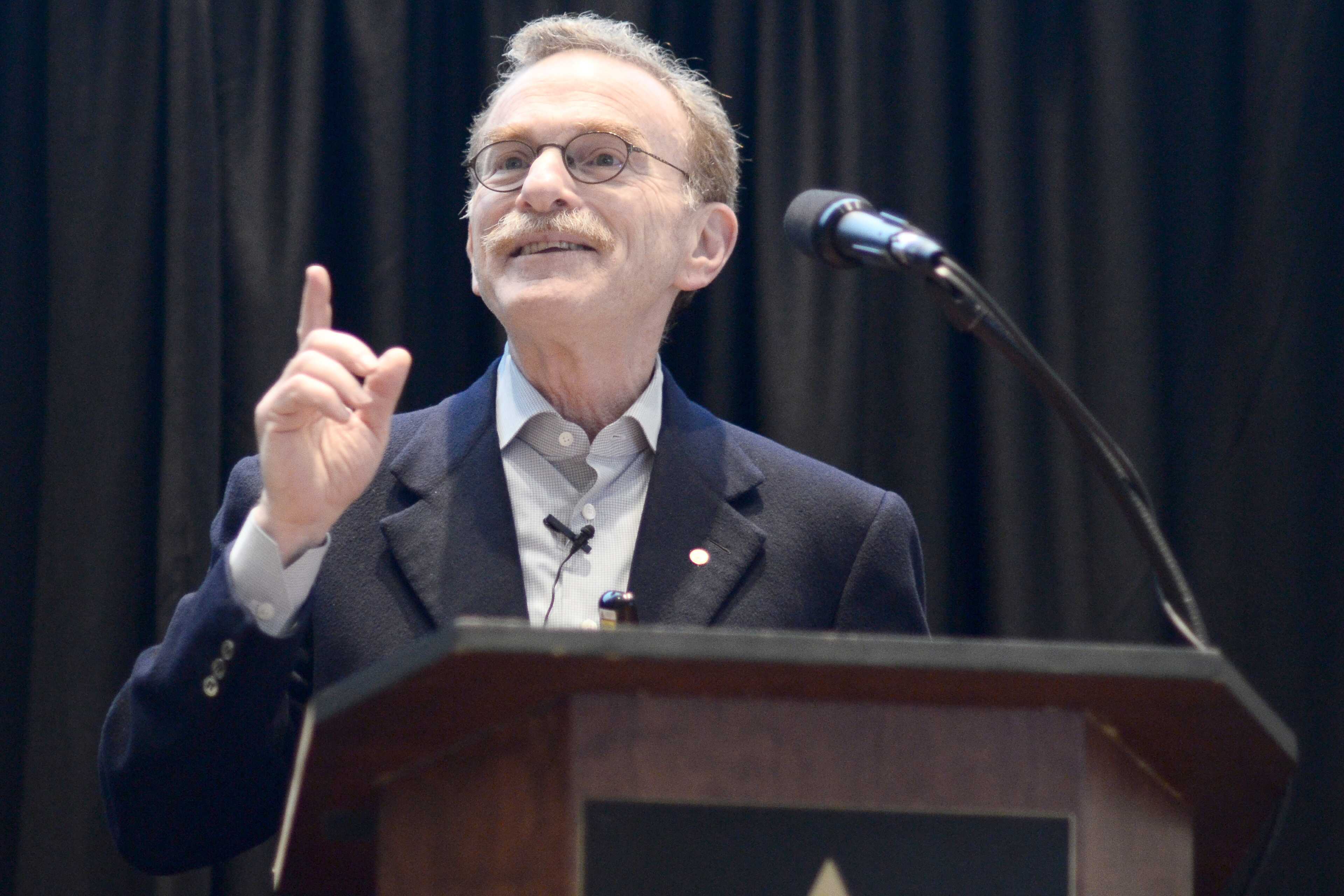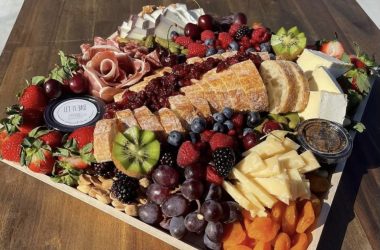Although scientists don’t always begin their careers expecting to win a Nobel Prize, it certainly doesn’t hurt having their name etched into the history of the honorary gold coin.
Biologist Dr. Randy Schekman originally started as a professor at the University of California, Berkeley in 1976. In 2013, he received the Nobel Prize in Physiology or Medicine for his work with proteins and their transport system inside cells, making him the 36th Nobel Laureate.
His award-winning research allowed for more practical applications in the field of biotechnology, like the creation of insulin for diabetics.
The Daily 49er spoke with Schekman after his lecture about his start in science, the state of public education today and some of the advice he’s been given throughout the years.
Daily 49er: What inspired your work with the protein transport system?
Dr. Randy Schekman: Ultimately, I was inspired by my previous work in how to use biochemistry. [It entailed] taking apart a complex cellular process by breaking the cell open and purifying the components and putting them back together to study how something works.
D49er: I read that you chose to donate the Nobel Prize money to the University of California, Berkeley. What inspired that decision for you?
RS: I did, yeah. I’ve never been really driven by money. I’m comfortable. I have everything that I need and want and I feel very strongly about public higher education. At Berkeley, we’re in a fierce competition to get the best young scholars to join our faculty. One way to help recruit someone or to keep them in the face of an offer somewhere else is to have money for endowed chairs. We have a number of endowed chairs at Berkeley, but never enough and so I decided that if I donated my prize money to create an endowed chair, that would stimulate others who have money than I do to donate, and that worked. In short order, we were able to raise $2 million to endow a chair and I was able to choose the name of the endowment. I named it in honor of my mother and sister who both died of cancer.
D49er: So what are the next steps California should be taking toward treating public education?
RS: I think the governor and the legislature have to realize that the investment in higher education in California is second-to-none in promoting the growth of commerce and industry in the state. Unfortunately, they – not just them but their predecessors [and] elected officials around the country – have systematically starved public universities of the resources that we used to rely on. It’s repeated through the CSU system. It’s repeated through UCs. Indeed, it’s repeated elsewhere around the country. This is very shortsighted, and it’s shortchanging your generation who now have to pay a hell of a lot more than I had to pay to get a public education.
D49er: Do you think the lack of funding affects those who are trying to do research in the science fields?
RS: Sure it does … It used to be that the university had enough money to help a young faculty member start with what are called setup funds, but now it’s not enough. To be competitive, to get the best young scholars, the university has to invest beginning with a million dollars or more. And that doesn’t come from the state, it doesn’t come from the university—it comes from private donations. The universities have to become more aggressive in seeking private funding in the absence of state funding.
D49er: How do you think we can get more kids interested in the sciences today?
RS: Well I don’t have one answer for that, but I can tell you what got me going. As I said in my talk, [my intrigue began] with science fair projects. I don’t think kids do the same kinds of science fair projects. I mean to me, that was how I fed my passion. I wasn’t strong in other academic subjects, but I sure loved science. And it was all because I had that annual, independent project that I could work toward. I think if there were more of an expectation from junior and high school kids to do a science project, some of them, like me, would be turned on by that. Most would not, but some would. Then we’d have more people who would want to carry on and do that in college, in graduate school and maybe in their career.
D49er: What’s the worst piece of scientific advice you’ve been given?
RS: [Laughs.] That’s an interesting question. I would say, in sort of the converse of what I said at the end of my talk, people probably thought when I started my independent career that I should continue to do the work that I had done previously. That would have been the conservative answer or the conservative advice. ‘You’ve proven yourself in x, so you should continue to do x.’ I ignored that advice and decided to do my own thing, and I don’t regret it at all.




